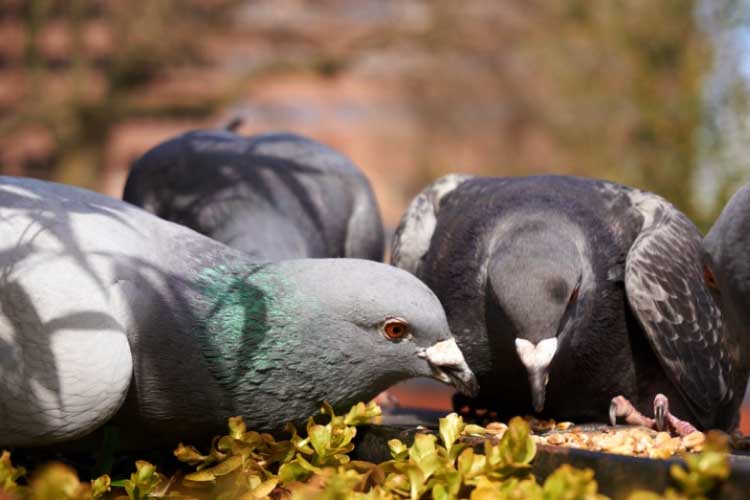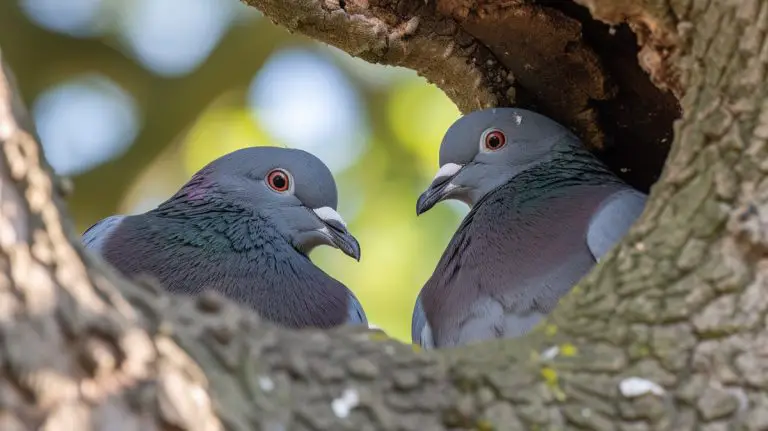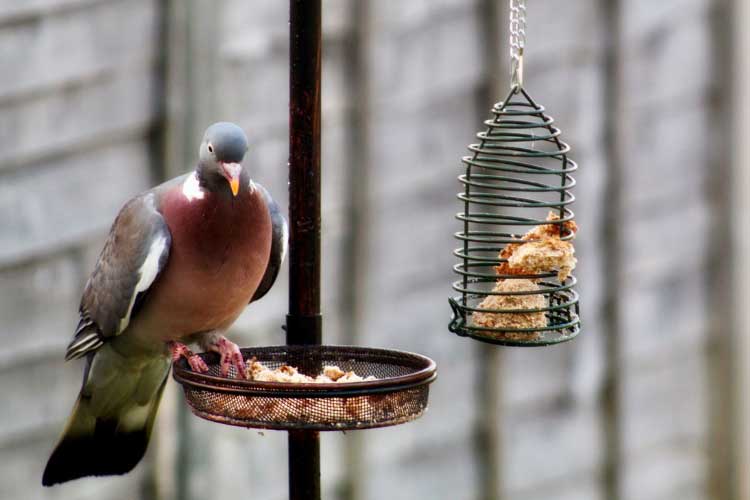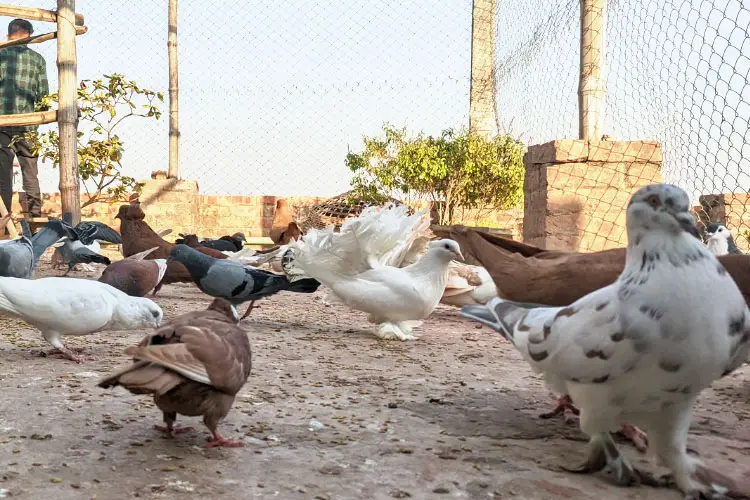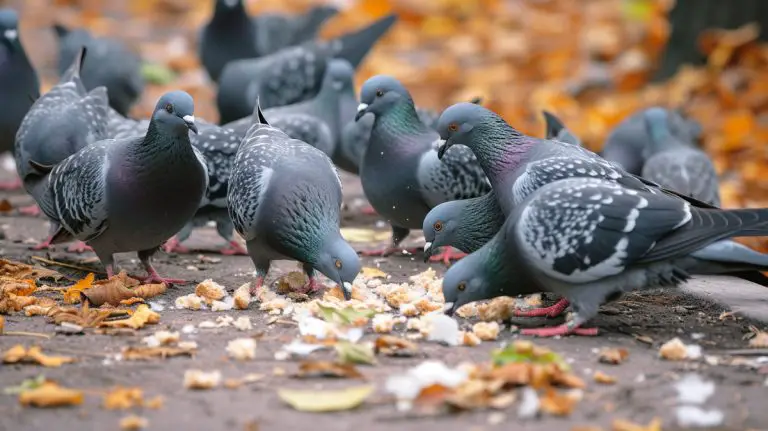Space Requirements for Pigeons: Optimal Flight and Enrichment
As a seasoned pigeon enthusiast, I’ve come to understand the importance of providing adequate space for these magnificent birds. Whether you’re a beginner or a seasoned pigeon keeper, understanding the space requirements for pigeons is crucial for their well-being and overall health. In this article, I’ll delve into the key factors to consider when it comes to providing the right amount of space for your pigeons, ensuring they have the freedom to thrive and flourish.
Pigeons, with their innate need for flight and exploration, require ample space to spread their wings and engage in natural behaviors. From my experience, providing a spacious loft or aviary is essential for their physical and mental stimulation. In this article, I’ll discuss the minimum space requirements for pigeons, taking into account factors such as the number of birds, the size of the breed, and the type of housing. By understanding these requirements, you’ll be able to create a comfortable and enriching environment for your pigeons, allowing them to lead happy and healthy lives.
Importance of Space for Pigeons
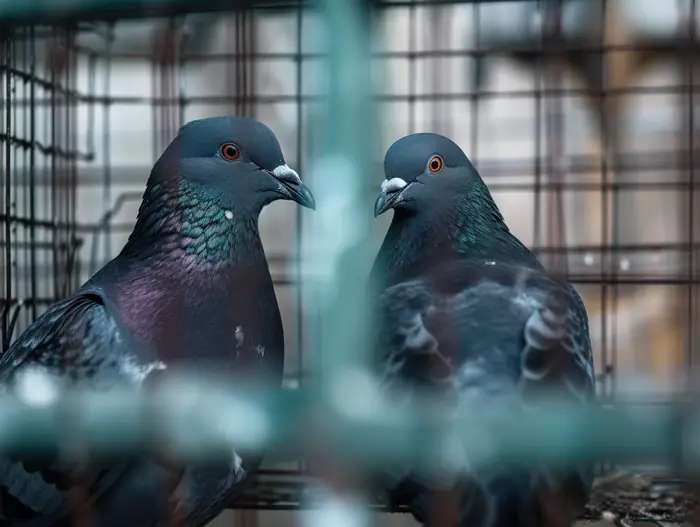
As an expert blogger with years of experience researching and writing about pigeons, I understand the significance of providing adequate space for these fascinating creatures. When it comes to pigeons, space is more than just an empty area – it is an essential aspect of their wellbeing and quality of life. Here’s why the proper amount of space is crucial for pigeons:
1. Physical Health: Pigeons require enough room to stretch their wings, flap, and exercise. Without sufficient space, they can develop health issues such as muscle atrophy or joint problems. A cramped living environment can hinder their movement and lead to a sedentary lifestyle, which can be detrimental to their overall health and happiness.
2. Psychological Stimulation: Pigeons are intelligent birds that thrive on mental stimulation. A spacious environment allows them to engage in natural behaviors, such as exploring, perching, and nesting. It gives them the freedom to express their instincts, increasing their overall mental wellbeing. Lack of space can result in boredom and stress, leading to behavioral problems like feather plucking or aggression.
3. Social Interaction: Pigeons are highly social animals and thrive in flocks. Adequate space allows them to establish hierarchies, form pair bonds, and engage in social interactions with their fellow pigeons. It creates an environment that fosters positive social dynamics and reduces the likelihood of conflicts or aggression arising from overcrowding.
4. Flight Training: Flight is a fundamental aspect of a pigeon’s nature. Providing sufficient space is crucial for young pigeons to develop their flight skills. It allows them to practice and strengthen their wings, enabling them to navigate and adapt to their surroundings confidently.
5. Disease Prevention: An overcrowded space can contribute to the spread of diseases among pigeons. Good ventilation and ample space between birds reduces the risk of airborne pathogens being transmitted from one bird to another. It also helps maintain hygiene by preventing the buildup of waste and contaminants, promoting a healthier environment for the pigeons.
Providing enough space for pigeons is not just a matter of convenience – it is essential for their physical and mental health. From maintaining their physical fitness to fostering social interactions and preventing diseases, ample space plays a vital role in ensuring that pigeons lead happy and fulfilling lives. By understanding the importance of space for pigeons, we can create environments that meet their needs and promote their overall welfare.
Factors to Consider for Providing Adequate Space
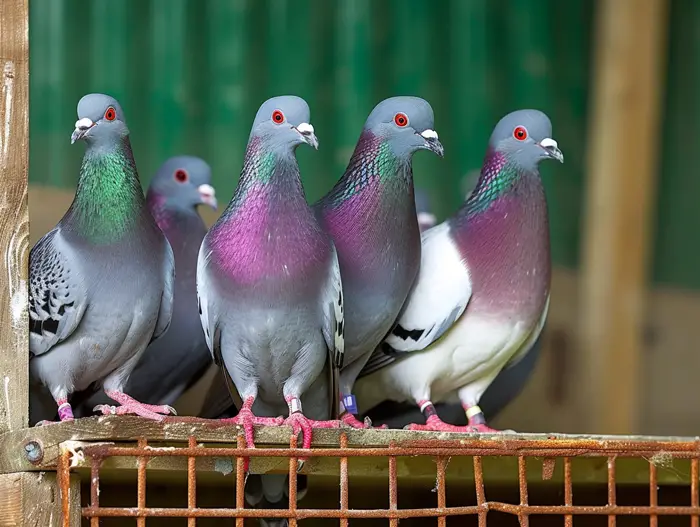
When it comes to providing adequate space for pigeons, there are several important factors to consider. Ensuring that pigeons have enough room to stretch their wings and fly freely is crucial for their physical and mental well-being. Let’s explore some key considerations to keep in mind:
1. Flight area: Pigeons are natural fliers, and having enough space to fly is essential for their overall health. A generous flight area allows them to exercise their wings, build strength, and maintain good muscle tone. It’s important to provide a flight area that is both wide and tall enough to accommodate their wingspan. This will give them the freedom to soar and explore their surroundings.
2. Perches and landing spaces: Pigeons need perches and landing spaces to rest and navigate their environment. It’s important to have an adequate number of perches available in their living area to ensure they have enough resting spots. These perches should be placed at different heights and angles to offer variety and stimulation.
3. Social interaction: Pigeons are social birds and thrive in the company of their flock. Providing enough space for pigeons to interact and socialize is crucial for their mental well-being. It’s recommended to have multiple pigeons together in a spacious area, as this promotes natural flock dynamics and allows for social interactions, such as grooming and bonding.
4. Enrichment opportunities: Pigeons are intelligent birds and benefit from mental stimulation. Offering a variety of toys, puzzles, and other enrichment activities in their living space can keep them engaged and prevent boredom. These activities, combined with a spacious environment, can provide mental stimulation and contribute to their overall well-being.
5. Disease prevention and hygiene: Adequate space plays a vital role in disease prevention and maintaining hygiene. Overcrowding can lead to the spread of diseases and increase the risk of stress-related health issues. Sufficient space allows for better air circulation, minimizes the accumulation of waste materials, and promotes overall cleanliness.
Creating a spacious environment for pigeons is essential for their physical health, mental stimulation, and overall well-being. By considering these factors and ensuring they have enough space to move, fly, and socialize, we can provide pigeons with a comfortable and enriching living environment.
Minimum Space Requirements for Pigeons

When it comes to creating a comfortable environment for pigeons, providing them with enough space is crucial. As a responsible pigeon owner or enthusiast, it’s important to understand the minimum space requirements for these birds. Here are a few key points to consider:
- Flight Area:
- Perches and Landing Spaces:
- Social Interaction Opportunities:
- Enrichment Activities:
Remember, these are minimum space requirements and providing additional space is always beneficial. Adequate space for pigeons not only promotes their physical and mental well-being but also helps prevent the spread of diseases and ensures good hygiene.
Factors Affecting Space Requirements:
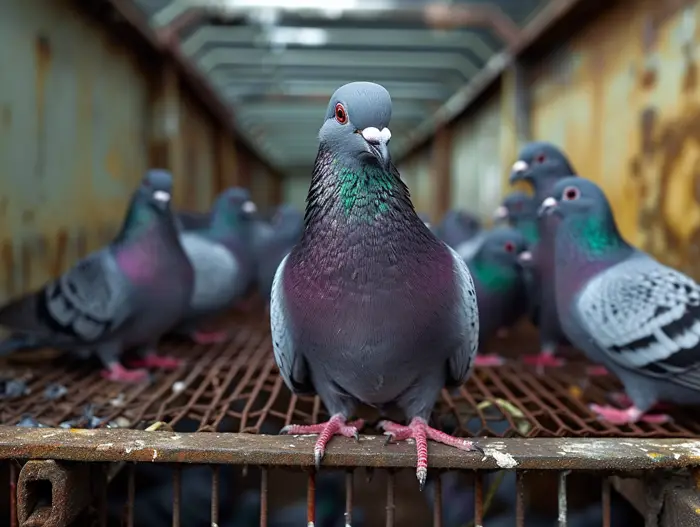
When it comes to providing adequate space for pigeons, there are several factors that need to be considered. These factors play a crucial role in determining the space requirements for these birds. Let’s explore them in more detail:
- Flight Ability: Pigeons are known for their impressive flying skills. Providing enough space for them to stretch their wings and fly is essential for their overall well-being. Flight is not only a natural behavior for pigeons, but it also helps them maintain physical fitness. A spacious flight area allows them to engage in natural flight patterns, ensuring that they stay active and healthy.
- Natural Behaviors: Pigeons have specific natural behaviors that need to be accommodated in their living space. They require perches and landing spaces where they can rest, socialize, and observe their surroundings. These perches should be located at different heights and offer a variety of surfaces for the birds to perch on. Having ample perching and landing spaces allows pigeons to exhibit their natural behaviors and reduces stress.
- Social Interaction: Pigeons are social creatures that thrive in the company of their fellow pigeons. It’s important to provide enough space for them to interact and establish social hierarchies. Socializing with other pigeons helps fulfill their social needs and promotes overall mental well-being.
- Enrichment Activities: Pigeons are intelligent birds that benefit from mental stimulation. Providing ample space allows for the inclusion of enrichment activities such as toys, puzzles, and obstacles. These activities keep the pigeons engaged, preventing boredom and promoting mental stimulation.
It is essential to keep in mind that providing additional space beyond the minimum requirements is always beneficial. More space gives pigeons the freedom to move, fly, and express their natural behaviors to the fullest extent. Moreover, adequate space promotes physical and mental well-being and reduces the risk of disease transmission.
Creating a Comfortable and Enriching Environment
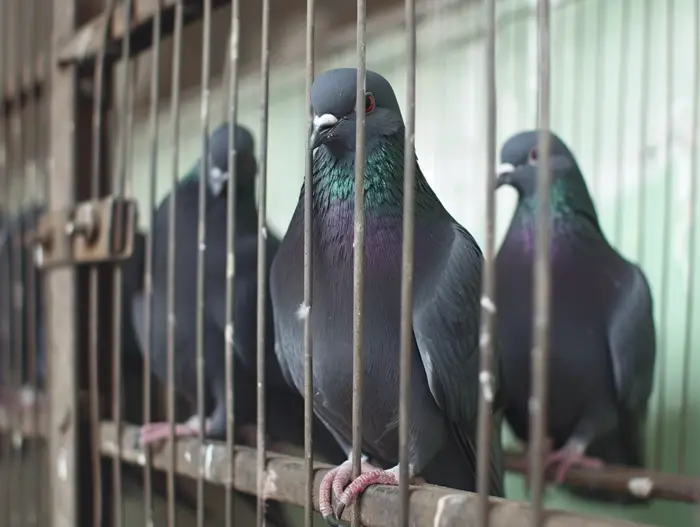
One of the key factors in providing adequate space for pigeons is to create a comfortable and enriching environment for them. Pigeons, like any other living beings, thrive in surroundings that meet their physical and psychological needs. Here are some important considerations for creating such an environment for pigeons:
1. Adequate Housing: Providing a spacious and well-designed housing structure is essential. This includes a suitable flight area where pigeons can engage in natural flight patterns, allowing them to maintain their physical fitness. The housing should have enough room for the pigeons to move around comfortably and engage in other behaviors such as perching, nesting, and preening.
2. Enrichment Activities: Keeping pigeons mentally stimulated is just as important as providing them with physical space. Enrichment activities can include the use of puzzles, toys, and obstacles that encourage natural behaviors in pigeons. These activities help prevent boredom, reduce stress, and promote mental well-being.
3. Social Interaction: Pigeons are highly social animals and thrive in the company of others. Therefore, it is crucial to provide opportunities for social interaction within their housing environment. This can be achieved by having multiple perches and landing spaces at different heights, as well as providing companionship through the presence of other pigeons.
4. Proper Ventilation: Good ventilation is essential to maintain a healthy and comfortable environment for pigeons. It helps control temperature, humidity, and prevents the build-up of stale air and harmful airborne pollutants. Adequate ventilation also helps in reducing the risk of respiratory diseases.
5. Hygiene and Cleanliness: Ensuring cleanliness and hygiene in the pigeon housing area is vital. Regular cleaning, removal of droppings, and maintaining a clean water source contribute to the overall health and well-being of the pigeons. It helps prevent the spread of diseases and keeps the environment comfortable for the birds.
By considering these factors and providing a comfortable and enriching environment for pigeons, we can promote their overall welfare and ensure their physical and mental well-being. This not only benefits the pigeons themselves but also contributes to the prevention of diseases and maintenance of a healthy bird population.
Conclusion
Providing adequate space for pigeons is crucial for their overall welfare and well-being. The article has highlighted various factors that influence the space requirements for these birds. It emphasizes the importance of a spacious flight area to allow pigeons to engage in natural flight patterns and maintain their physical fitness. Accommodating their natural behaviors, such as providing perches and landing spaces at different heights, is also essential.
In addition, social interaction and enrichment activities play a significant role in promoting the mental well-being of pigeons. By providing extra space beyond the minimum requirements, we can create a comfortable and enriching environment for these birds. This not only benefits the pigeons themselves but also helps prevent the spread of diseases.
Considering factors such as adequate housing, enrichment activities, social interaction, proper ventilation, and hygiene and cleanliness, we can ensure the overall welfare of pigeons. By implementing these measures, we contribute to the health and happiness of these remarkable birds.

